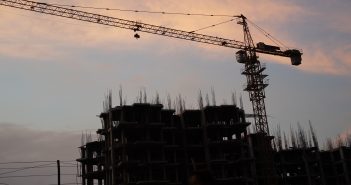
Realty under IT scanner
Suspecting the use of black money to finance deals in the country’s booming real estate sector, the Income Tax Department is keeping close tabs on the sources of funding for developers’ lucrative projects.

Suspecting the use of black money to finance deals in the country’s booming real estate sector, the Income Tax Department is keeping close tabs on the sources of funding for developers’ lucrative projects.

RERA is yet again under the scanner after the Supreme Court of India questioned whether it is a rehabilitation center of ex bureaucrats. The functioning and performance of RERA, or rather lack of it, has been challenged at each and every level in now nearly 8 years of its existence. A Track2Realty report. Wait! I am not giving any opinion. My opinion is already there in the public domain. Now the Apex Court in the country, the Supreme Court of India is saying so. I have always maintained that the very purpose of RERA was defeated when the ex-Bureaucrats were made the Chairman and members.

A closer look at the way the sector operates indicates that the ground realities are different than what is being anticipated post this historic judgment. The Supreme Court order has hence raised more questions than settled the answers that could goad the sector to best practices in the business. The court order touches upon some of the grey areas like “long & expensive legal battle” that the buyers have to go through. It nevertheless doesn’t offer any solution for the same. The fact remains that the long & expensive legal battle is the primary cause of home buyers’ suffering in silence at the hands of the builders.

The Nifty Realty Index that touched a low of 162.13 on 19th May in the post Covid mayhem has now scaled up to 280.00 (First week of December). The BSE and Nifty also surged more than 50% since the March lows, thus making the Indian stock market one of the best performers across the world. India’s only REIT, Embassy Office Park that scaled down at INR 319 is back in the range of 350 with a forecast of crossing 400. The second REIT, Mindspace Business Pak that was over-subscribed 12.96 times in the month of August this year, is also on its growth curve.

In the ‘golden years’ of India’s housing market, property was the default go-to option for big-ticket investment. With real estate’s fading allure, investors began exploring other options and found them to quite rewarding. For instance, they can invest in a start-up with sums as ‘low’ as INR 10 lakhs. Many entrepreneurially-inclined Indians find the potential ROI (as high as 15% in many instances) makes more sense. Mutual funds provide good returns and the entry level is low enough to be affordable to many.

The country’s housing market has also seen the highest impact of policy-induced disruptions. Given the fact that the housing market was tainted by malpractices and lack of customer-centricity by developers, the Government had to step in with policy interventions squarely aimed at cleaning up the sector.

Various Government-driven policies including ease of doing business in India are attracting both Indian and global companies, squarely benefiting commercial real estate. Big-bang boosters like the start-up revolution and the Make in India and Smart Cities missions have created a very lucrative environment for businesses to work and expand in India.

The Indians think instead of media hyperbole of big measures many of the small but practical measures can go a long way to ensure a house for each family, if not each individual. Some of the suggested measures may not make the government popular, and hence the Indians are not convinced with the promise of housing for all.

This policy ‘trishul’ brought about a paradigm shift in the way Indian real estate does business and laid the groundwork for improved transparency and efficiency in the sector. However, while end-user and investor confidence were rekindled for real estate, it did not exactly set the industry on fire with renewed interest.

It is not just the ambiguity around the RERA that makes the Indians feel there is no hope for them. Most of the reform measures have not touched upon the average Indian homebuyers, claim close to three fourth of the buyers, as many as 72%.
